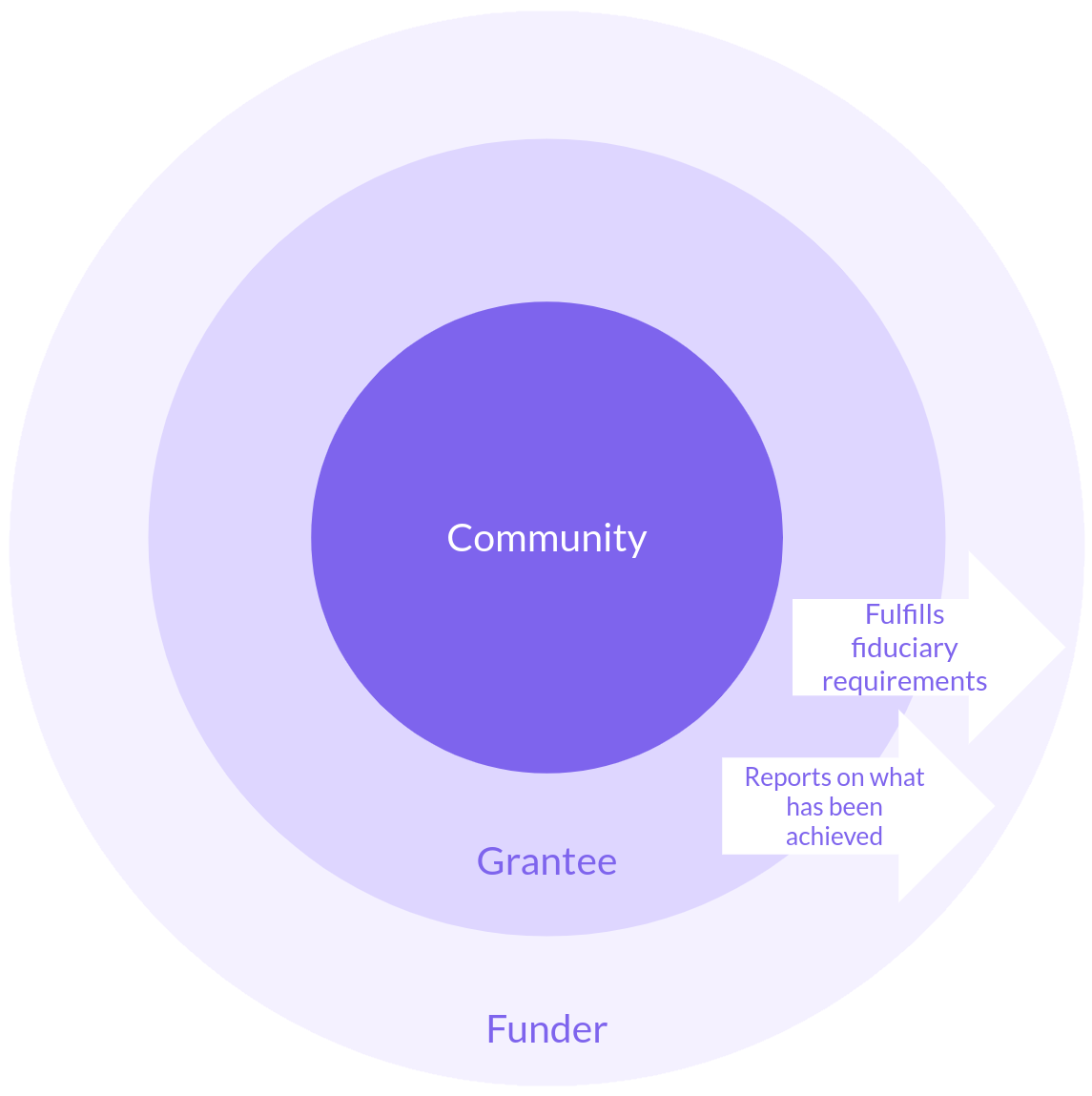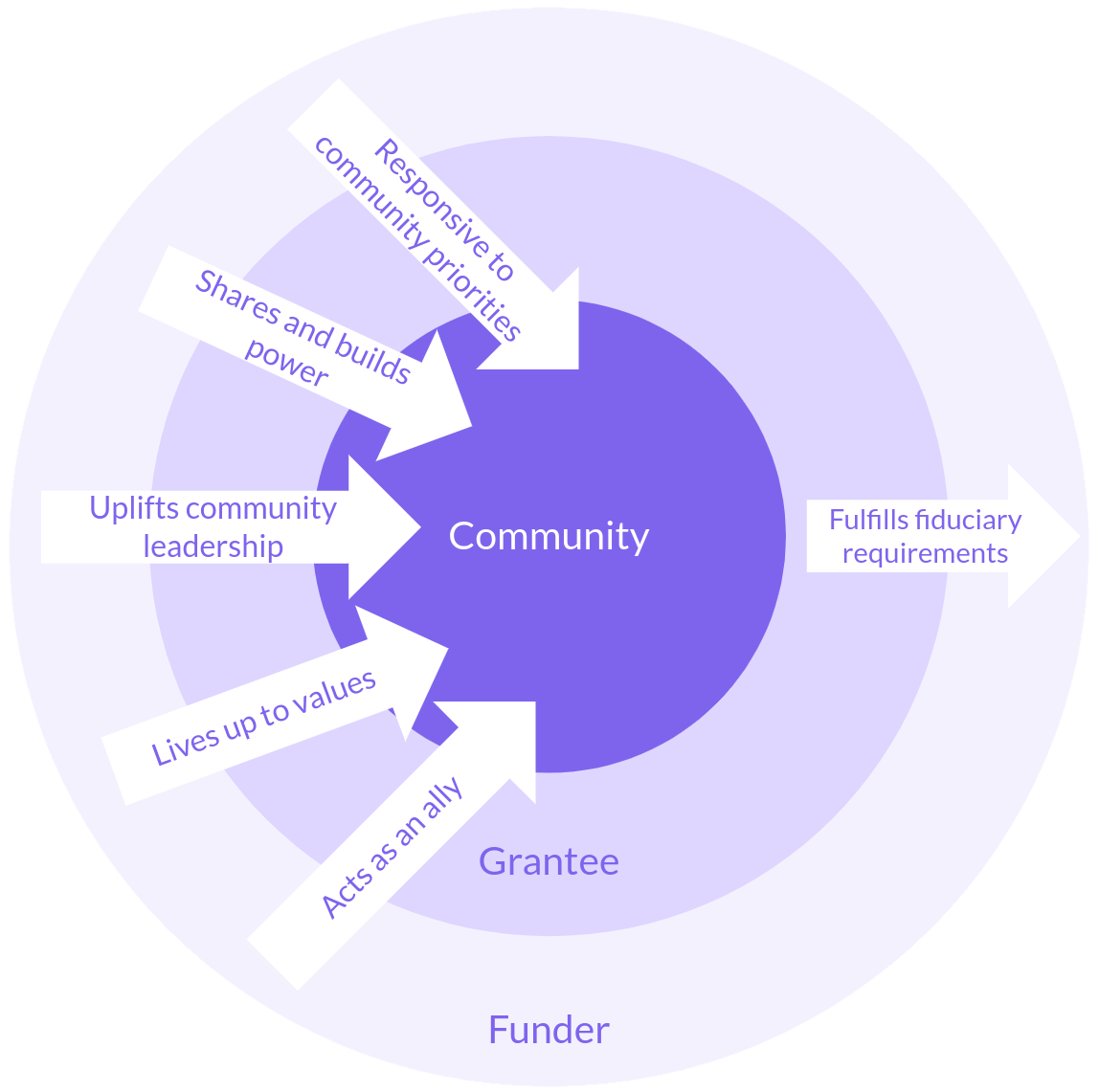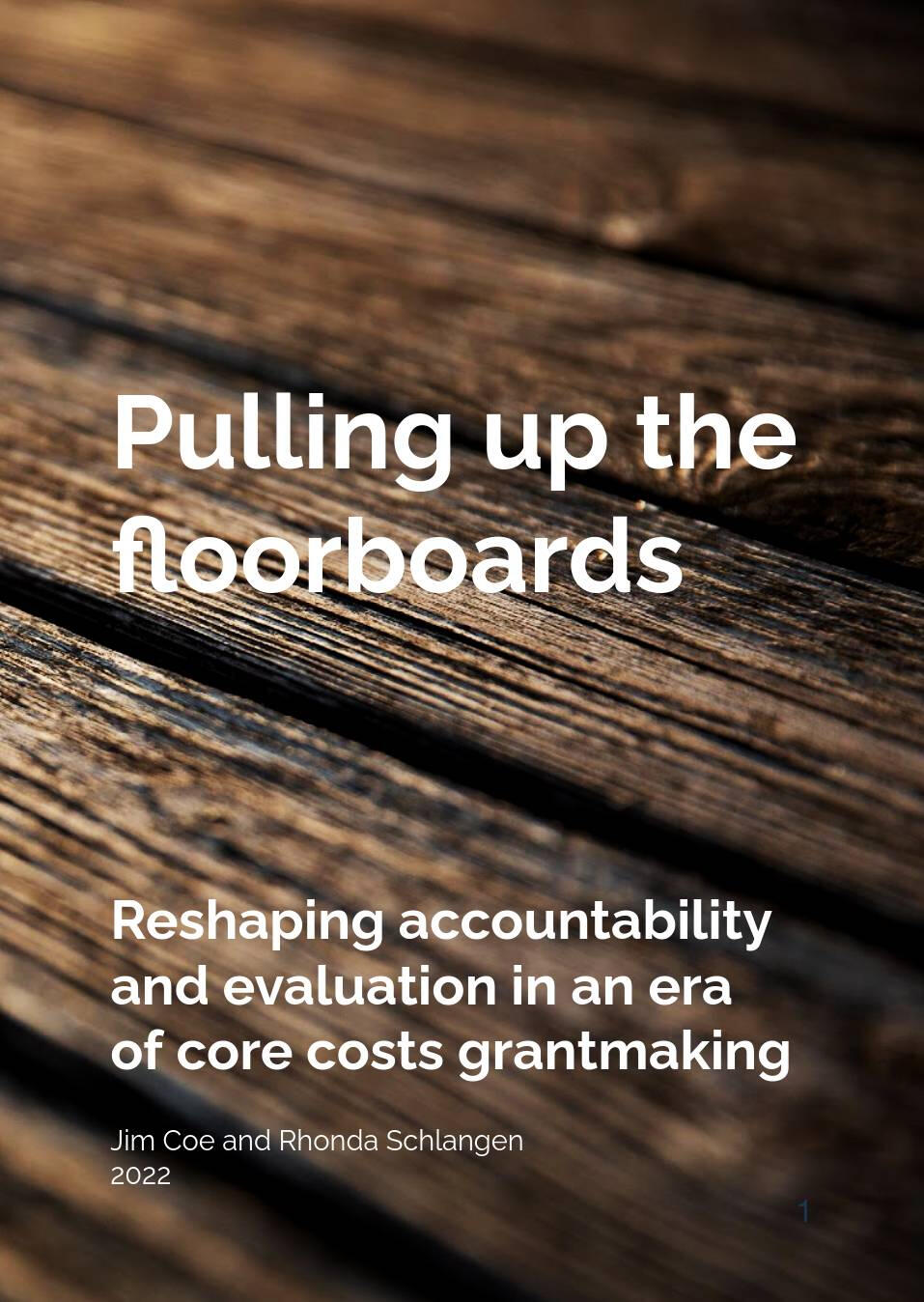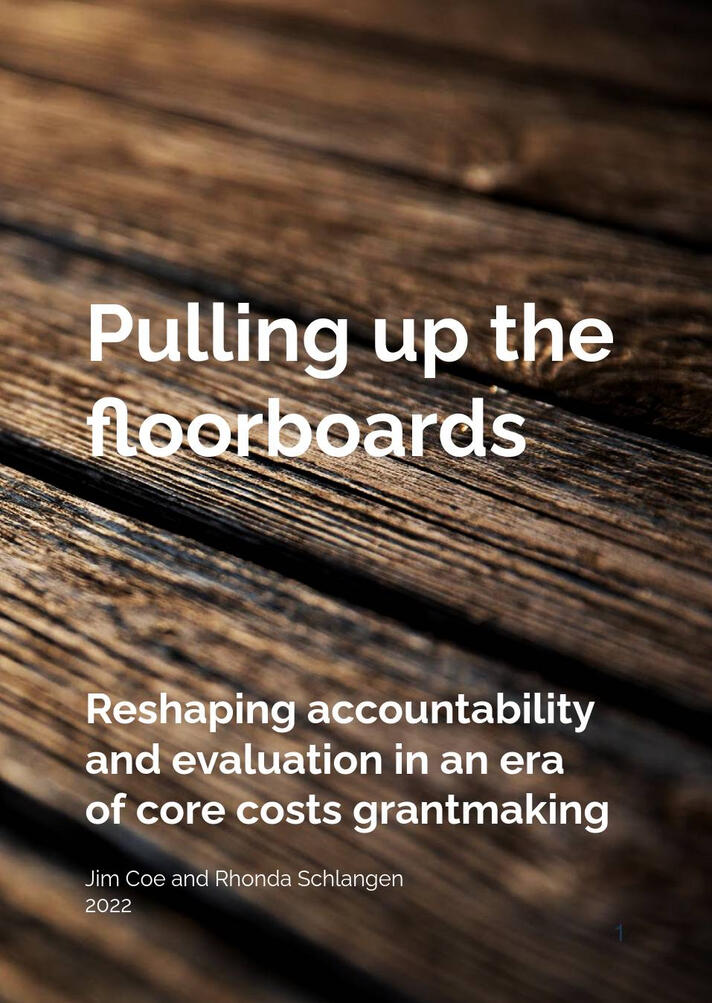Funding core costs: the revolution starts here
Many foundations are taking or considering the radical step of moving from funding projects to funding grantees’ core costs.It is a very welcome (and overdue) shift, but funders must follow through on its revolutionary potential.We think this is a moment to pull up the floorboards of philanthropic social change, address its fundamental flaws and build a more equitable system.
What are “core costs”?We are referring to philanthropic funding that covers the operating costs of a grantee to do business on a multi-year basis, not restricted to a particular program or expense.This can also be known as “general operating support”, “unrestricted funding” or “multi-year, general operating dollars”.
This new configuration means:
Resetting power dynamics between funders and organizations implementing the work, and the communities they are part of
Deep re-examination of what is important in the funder-grantee dynamic and who gets to decide it
Fundamentally reorientating evaluation and how effectiveness is defined and measured
“Adopting a core cost model is a revolutionary opportunity to reset the power dynamics between funders, grantees and communities”
Reorienting accountability
In conventional grant making accountability is primarily to funders.Accountability to the communities that foundations intend to support exists more in rhetoric than in practice.We think the change to core costs funding opens up a key opportunity to reimagine the dominant model.
A radical shift can put communities at the center of the grantmaking equation, with accountability flowing from funders towards grantees and ultimately to communities – and not from them towards funders.

Traditional accountability

Upended accountability

Accountability relationships in a core cost grantmaking model
Accountable to...
| Funder | Grantee | Communities | |
|---|---|---|---|
| Funder | // | Operates according to values // Is a good ally | Is a legitimate actor // Is guided by the community // Shares and builds power |
| Grantee | Fulfils fiduciary standards | // | Is a legitimate actor // Is guided by the community // Shares and builds power |
| Communities | Hold funder accountable for being an ally // Contribute to funder participatory processes to allocate resources | Hold grantee accountable for engaging and representing community // Contribute to grantee's participatory processes to provide feedback/develop learning | // |
This is a simplified version of how reorientated accountability could look. You can download a more comprehensive table here and we set out more details in the report.
“We have to take up the floorboards and look at even the most ordinary piece of thinking”
Mary Midgeley
Reimagining roles for funders
This is a time of debate and uncertainty about foundations’ roles and legitimacy. But there is a clear path for funders who want to be able to channel communities’ priorities in their decision making.In our paper, we propose that funders should operate as a trusted ally and partner, developing a legitimacy to act through the deep relationships they build with partners and communities.
This means:
Being community-guided and centering participation
Being accountable to grantees, movements and communities and taking that accountability seriously
Asking fundamentally different starting questions
Thinking differently about effectiveness and who gets to define it
“The intrinsic logic of a core costs model means evaluation needs rebuilding from its foundations”
Rethinking how we evaluate
Conventional evaluation practices - exploring how projects deliver results - are not fit for purpose in a core costs model. Instead:
Evaluation frameworks must lock in learning and mutual accountability by remodeling the questions and measures that funders, grantees, civil society, and communities use to measure effectiveness.
Effectiveness should not be equated with the results a single actor ‘delivers’ but instead considered in terms of responsiveness, accountability, relationships, allyship, and the sharing and building of power.
Let's talk
Our report does not have all the answers. We know that many others are grappling with similar questions. We hope we can make a contribution to improving the system alongside you and we would welcome the chance to discuss these issues together.We are also keen to work with funders or others to help put changes into practice. If you are interested in exploring what this might mean for your own work, we are happy to collaborate with you, testing approaches and learning from them.
Please get in touch via email or Twitter – we would love to hear your reactions, reflections and challenges.

Jim Coe
@jim_coe
jimcoe3@gmail.com

Rhonda Schlangen
@rhondaschlangen
rhondaschlangen@gmail.com
We are learning and evaluation consultants focusing on advocacy and social change, each bringing over 20 years of professional experience in public policy, advocacy and evaluation.
Our other joint publications include:No Royal Road: Finding and Following the Natural Pathways in Advocacy EvaluationLooking Through the Right End of the TelescopeThe Value Iceberg: Weighing the Benefits of Advocacy and CampaigningRadical rerouting: New roads for advocacy evaluation
(this report is behind a paywall – please contact us and we are happy to share a copy with you)
Except for photos, content on this site is licensed under a Creative Commons Attribution-NonCommercial-ShareAlike 4.0 International licensePhotos in order of appearance:
Cottonbro from Pexels
RF._.studio from Pexels
Anthony Delanoix on Unsplash
Michael Tampakakis from Pexels
Erika Giraud on Unsplash

